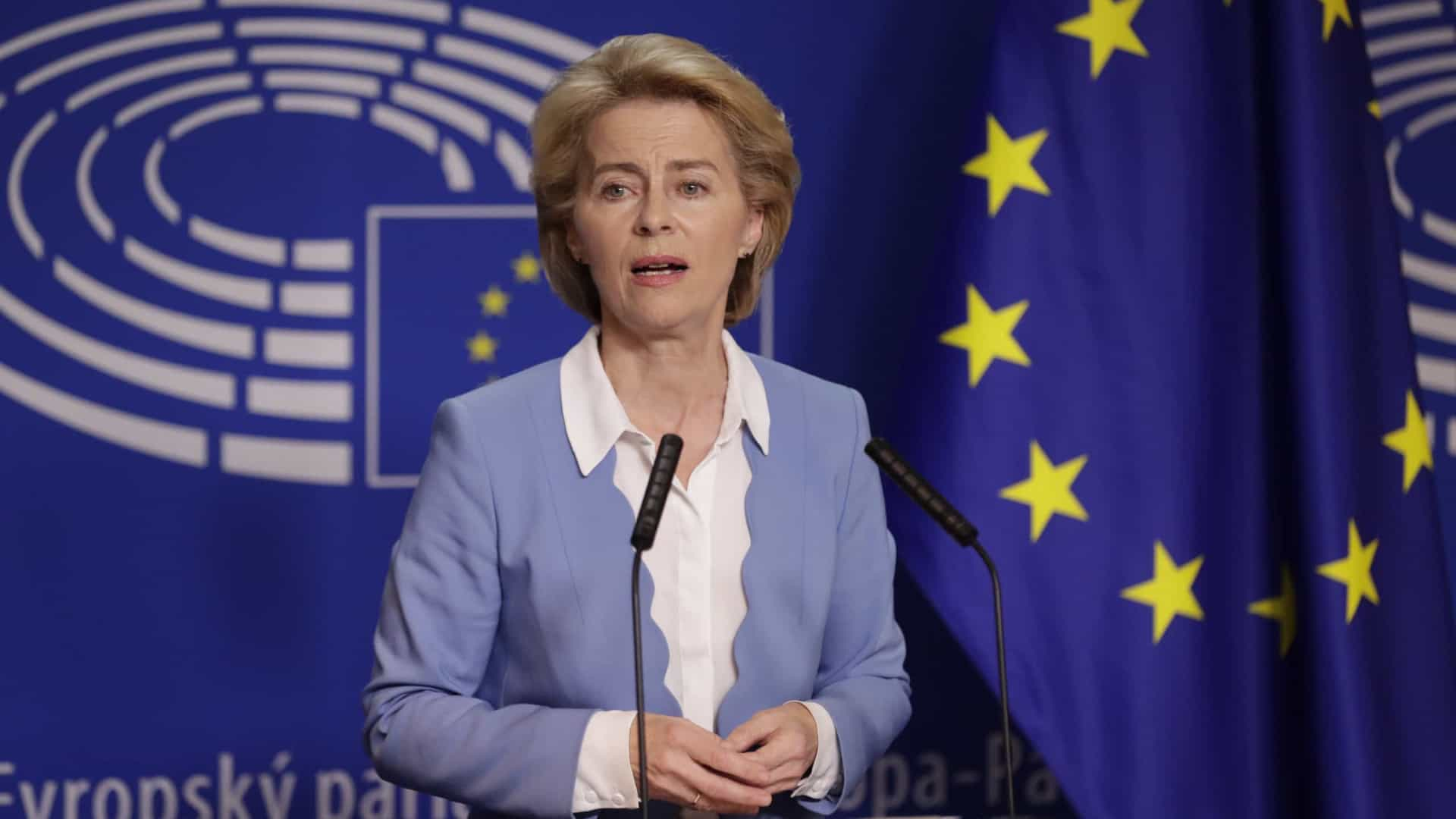EC president Ursula von der Leyen will be meeting with prime minister Luís Montenegro in Porto
Ursula von der Leyen, the president of the European Commission (EC) and the European People’s Party (EPP) candidate for a second term, is expected in Porto this Thursday afternoon for a campaign rally organised by Aliança Democrática (AD).
Also attending the rally will be right-wing alliance’s lead candidate for the European Parliament elections, Sebastião Bugalho, and Portugal’s prime minister, Luís Montenegro, leader of the centre-right Social Democratic Party (PSD).
Von der Leyen is to arrive in Porto in the early afternoon and, according to a source from the EPP, will meet with Montenegro at the city’s Palácio da Bolsa, the former stock exchange, at 5.15pm, before joining the AD campaign.
The rally in Rua de Santa Catarina is to start at 6pm, with the participation of the EC boss, Montenegro and Bugalho. The rally is due to end at Praça Dom João I.
Von der Leyen’s participation in the AD campaign comes on the day that voting for the European elections begins in some European Union member states, and three days before voting takes place in Portugal.
Around 400 million voters across the EU are called upon to choose the 720 members of the European Parliament in elections taking place in the 27 member states. Portugal will elect 21 members of the assembly on Sunday.
The commission president’s trip to Portugal comes at the invitation of AD – the electoral coalition formed by the PSD, the People’s Party (CDS-PP) and the People’s Monarchist Party (PPM). She has already been campaigning in Greece, Germany, Poland, Croatia, Denmark, Spain, Sweden and Finland.
Before voting in Germany on Sunday, Ursula von der Leyen will still be travelling to Austria.
At the age of 65, the former German defence minister is the EPP’s ‘Spitzenkandidat’ or top choice for the leadership of the EU executive, having presided over the institution since 2019, in a term marked by the UK’s exit from the EU, the fight against the Covid-19 pandemic, support for Ukraine in the face of the Russian invasion and, more recently, the heightening of geopolitical tensions in the Middle East due to the conflict between Israel and the Islamist group Hamas.
In addition to criticism from the left of her pro-Israel stance in the Middle East conflict, von der Leyen’s campaign has also been marked by her recent openness to dialogue with conservatives with a view to gaining enough support to be re-elected.
Von der Leyen has pledged that she will only make alliances with parliamentary groups that are pro-European, support Ukraine’s defence against the Russian invasion and reject alliances with Russian’s president, Vladimir Putin, as well as respecting the EU’s rule of law.
A new commission president is approved by the European Parliament based on a proposal from the European Council, in which all member states are represented. The assembly must approve the new president by an absolute majority (half of all MEPs plus one), with von der Leyen thus having to get the green light from at least 361 parliamentarians (out of a total of 720 seats).
As the first woman president of the commission, von der Leyen was approved by the European Parliament in July 2019 in a close vote, with 383 votes in favour, 327 against and 22 abstentions.
Source: LUSA




















